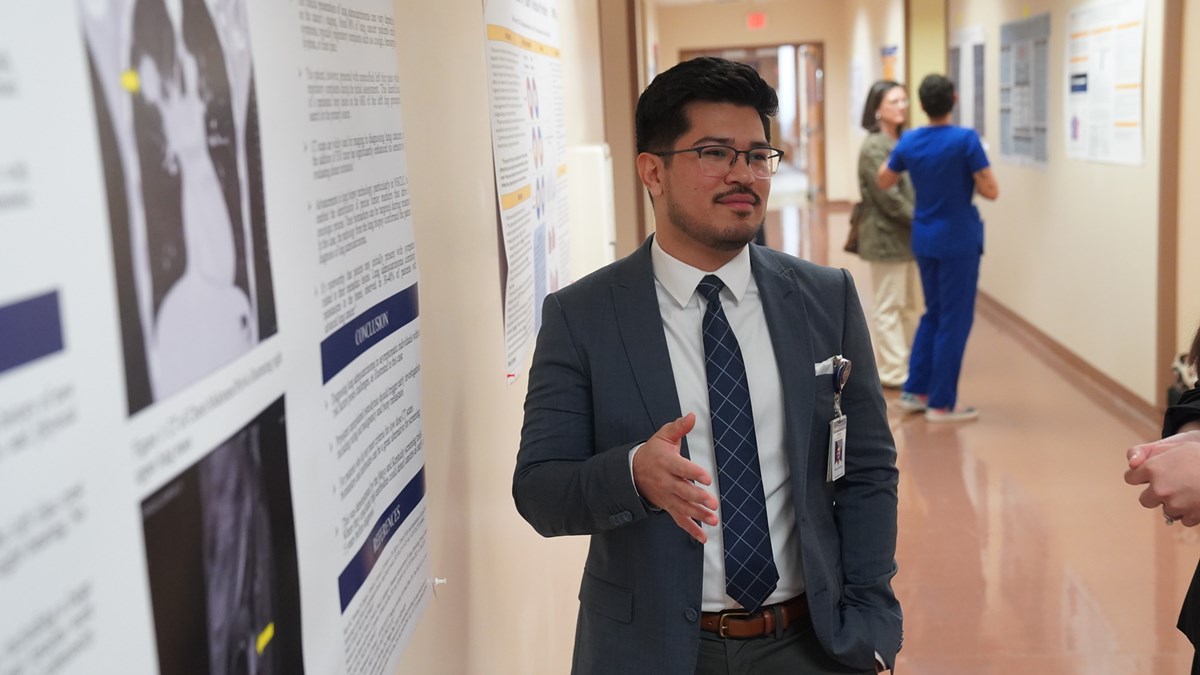Ever Hernandez

“Research is how we draw conclusions on better patient outcomes.”
As he progresses through his final year of medical school and prepares to apply for residency programs, Ever Hernandez reflects on his research experiences at the West Virginia University School of Medicine.
“Research is how we draw conclusions on better patient outcomes,” Hernandez said. “Thanks to our supportive faculty, I’ve had the opportunity to become involved in several research projects at the University that have taught me crucial research skills that will help me work towards those better outcomes in my future as a practicing physician.”
Hernandez’s first exposure to research at WVU occurred between his first and second years of medical school, when he volunteered in the lab of Paul Lockman, Ph.D., associate dean of research and strategic initiatives at the WVU School of Pharmacy.
Together, they examined how the utilization of cold atmospheric plasma can alter the blood-brain barrier in mice models and sensitize cancer cells to certain chemotherapeutic drugs, with the goal that one day this technology can increase the delivery of chemotherapeutic drugs for brain cancer patients. Hernandez said the chance to have hands-on involvement in a study of this magnitude further increased his passion for medical research, which he continued to pursue when he joined the School of Medicine’s Eastern Campus in his third year of training.
“The Eastern Campus provides incredible support for us as student researchers. At the start of each fall semester, the deans meet with all the students individually to gauge our research interests and help connect us with faculty mentors who are involved in research in our desired fields,” he explained.
Hernandez partnered with neurosurgeon Jonathan Sherman, M.D., and began by assisting him with writing reviewer comments on manuscript submissions prior to being published in scientific journals. Shortly after, he was given the opportunity to write a book chapter in a translational research textbook. Hernandez said that after a few months of working together, Dr. Sherman approached him with a research opportunity after observing a rare cardiovascular change that took place during surgery.
Upon further research, Hernandez discovered that only seven prior cases of that cardiovascular phenomenon had been reported and began authoring a case report. He presented it at the 2024 Eastern Campus Research Symposium, where he was one of the recognized winners. The report was also recently published in the Journal of Neurosurgery: Case Lessons.
As he begins applying to residency programs, Hernandez said he is grateful for the wealth of research experiences he has had at the School of Medicine.
“WVU has helped open a lot of doors for me as a student researcher by giving me opportunities to build both my in-lab research and scientific writing skills. I know the research skills I’ve learned here will be valuable tools in my toolbelt as I continue to pursue research in the next phase of my training."